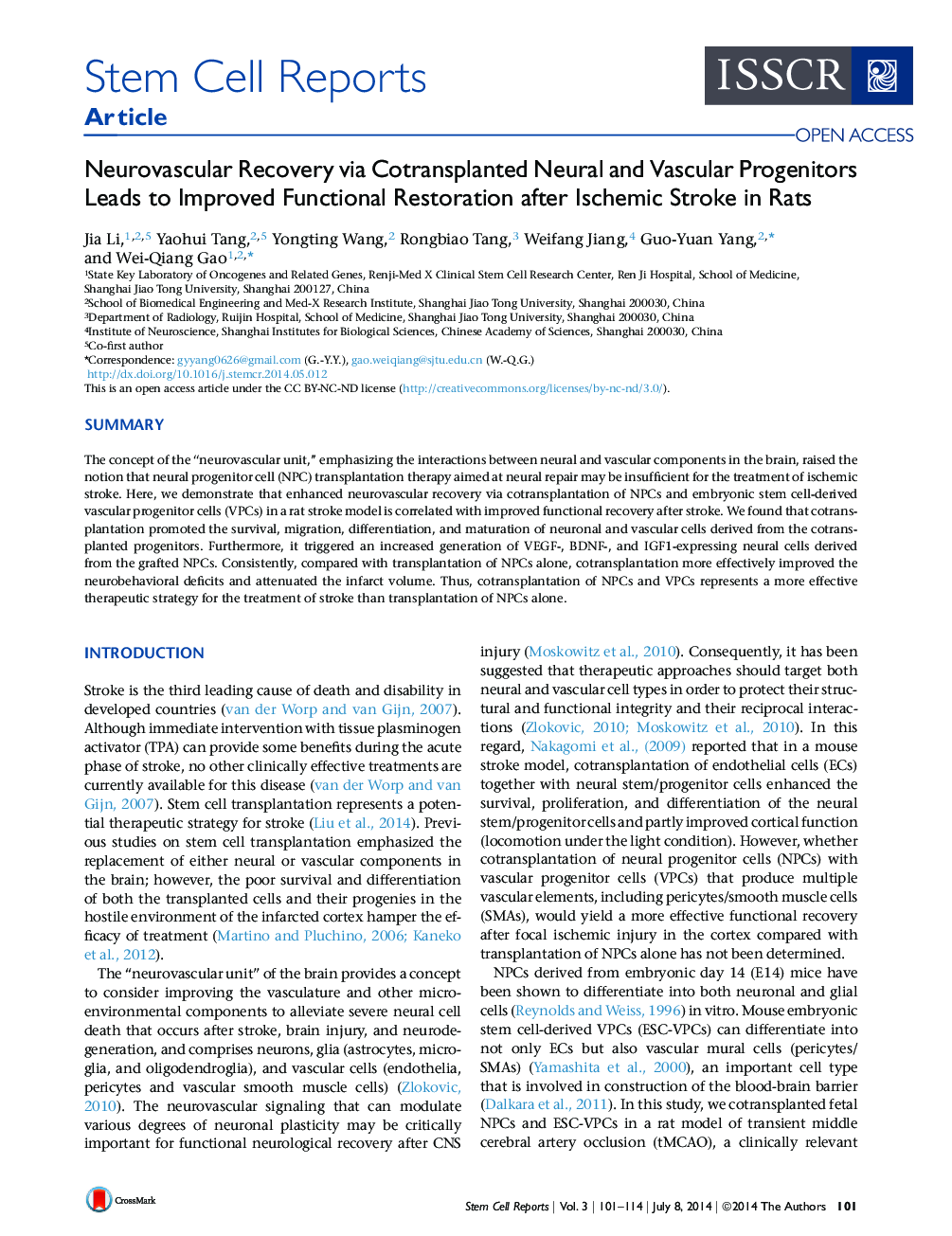| Article ID | Journal | Published Year | Pages | File Type |
|---|---|---|---|---|
| 2093384 | Stem Cell Reports | 2014 | 14 Pages |
•Neural and vascular progenitor cell cotransplantation therapy for ischemic stroke•Better neurovascular recovery by cotransplanted progenitor cells in the infarct area•Better infarction reduction and functional restoration by cotransplantation•Neurovascular recovery likely mediated by neural production of growth/trophic factors
SummaryThe concept of the “neurovascular unit,” emphasizing the interactions between neural and vascular components in the brain, raised the notion that neural progenitor cell (NPC) transplantation therapy aimed at neural repair may be insufficient for the treatment of ischemic stroke. Here, we demonstrate that enhanced neurovascular recovery via cotransplantation of NPCs and embryonic stem cell-derived vascular progenitor cells (VPCs) in a rat stroke model is correlated with improved functional recovery after stroke. We found that cotransplantation promoted the survival, migration, differentiation, and maturation of neuronal and vascular cells derived from the cotransplanted progenitors. Furthermore, it triggered an increased generation of VEGF-, BDNF-, and IGF1-expressing neural cells derived from the grafted NPCs. Consistently, compared with transplantation of NPCs alone, cotransplantation more effectively improved the neurobehavioral deficits and attenuated the infarct volume. Thus, cotransplantation of NPCs and VPCs represents a more effective therapeutic strategy for the treatment of stroke than transplantation of NPCs alone.
